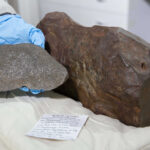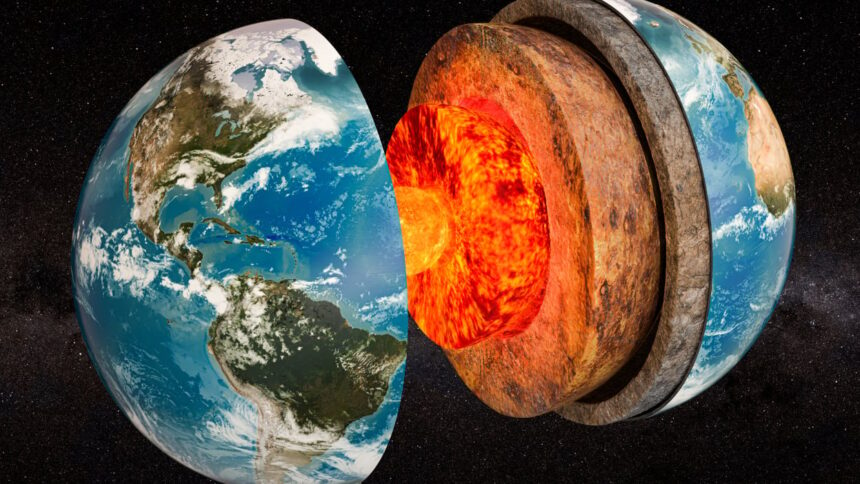The scientific community is on alert after detecting the presence of precious metals in volcanic rocks ejected to the surface in Hawaii, which could indicate that the Earth’s core may be leaking.
According to analyses by experts at the University of Göttingen in Germany, an organic component was found that typically exists only at depths greater than 3,000 kilometers.
The largest reserves of gold and other valuable metals are located near the Earth’s core, beneath a layer of solid rock that is currently impossible to penetrate with existing technology.
However, in a recent study published in the journal Nature, geologists discovered ruthenium (Ru) in fragments of volcanic rock. This transition metal, from group eight of the periodic table, is rare on the surface and is known for its resistance to corrosion, oxidation, and for its hardness.
In samples collected from the Hawaiian Islands, scientists identified high levels of the isotope ¹⁰⁰Ru—an isotopic signature that distinguishes ruthenium from the core from that found in the Earth’s mantle.
Thanks to advanced machine analysis by the Department of Geochemistry at the University of Göttingen, the presence of this previously undetectable element was confirmed.
Dr. Nils Messling, lead author of the study, explained: “When we got the first results, we realised we had literally hit the jackpot. Our data confirmed that material from the core—including gold and other precious metals—is seeping into the mantle above.”
According to the researchers, this occurs due to a large-scale thermal convection process deep within the Earth, where massive volumes of superheated, metal-rich mantle rise to the core-mantle boundary and later emerge to the surface as lava in active volcanic regions such as Hawaii. These events allow scientists to collect data and better understand what is happening inside the planet.
Study co-author Matthias Willbold, a professor in the University of Göttingen’s Department of Geochemistry and Isotope Research, said there is no solid, rigid boundary separating the core from the other layers; instead, they converge at various points.
“We can now show that hundreds of quadrillions of metric tons of rock generated at the core-mantle boundary rise to the Earth’s surface to form oceanic islands like Hawaii,” he said.
“It remains to be seen whether these mechanisms we observe today also operated in the planet’s geological past. However, our findings open up a new perspective on the evolution of Earth’s internal dynamics and the connectivity between its deepest layers,” Messling added.
As for whether this poses a danger to humanity or the natural ecosystem, researchers clarified that the fissures are not significant and are part of a normal geological process involved in the formation of new land.
They also noted that, in the long term, these mineral-rich sources—vital for modern technology—could prove useful. However, the current quantities are too small to be economically viable.





